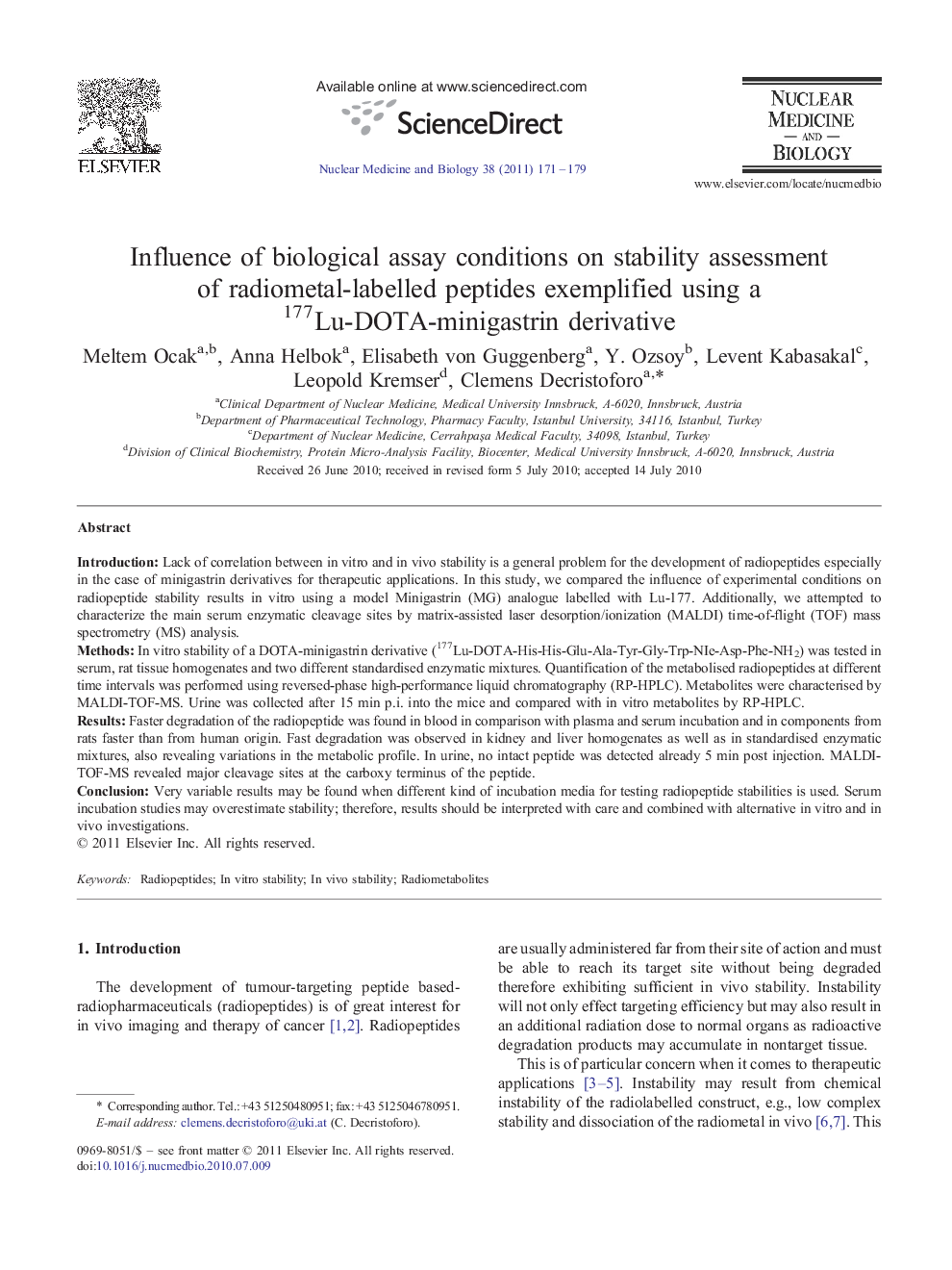| Article ID | Journal | Published Year | Pages | File Type |
|---|---|---|---|---|
| 2153906 | Nuclear Medicine and Biology | 2011 | 9 Pages |
IntroductionLack of correlation between in vitro and in vivo stability is a general problem for the development of radiopeptides especially in the case of minigastrin derivatives for therapeutic applications. In this study, we compared the influence of experimental conditions on radiopeptide stability results in vitro using a model Minigastrin (MG) analogue labelled with Lu-177. Additionally, we attempted to characterize the main serum enzymatic cleavage sites by matrix-assisted laser desorption/ionization (MALDI) time-of-flight (TOF) mass spectrometry (MS) analysis.MethodsIn vitro stability of a DOTA-minigastrin derivative (177Lu-DOTA-His-His-Glu-Ala-Tyr-Gly-Trp-NIe-Asp-Phe-NH2) was tested in serum, rat tissue homogenates and two different standardised enzymatic mixtures. Quantification of the metabolised radiopeptides at different time intervals was performed using reversed-phase high-performance liquid chromatography (RP-HPLC). Metabolites were characterised by MALDI-TOF-MS. Urine was collected after 15 min p.i. into the mice and compared with in vitro metabolites by RP-HPLC.ResultsFaster degradation of the radiopeptide was found in blood in comparison with plasma and serum incubation and in components from rats faster than from human origin. Fast degradation was observed in kidney and liver homogenates as well as in standardised enzymatic mixtures, also revealing variations in the metabolic profile. In urine, no intact peptide was detected already 5 min post injection. MALDI-TOF-MS revealed major cleavage sites at the carboxy terminus of the peptide.ConclusionVery variable results may be found when different kind of incubation media for testing radiopeptide stabilities is used. Serum incubation studies may overestimate stability; therefore, results should be interpreted with care and combined with alternative in vitro and in vivo investigations.
